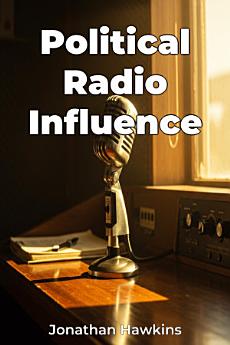Political Radio Influence
Mar 2025 · Publifye AS
Ebook
71
Pages
family_home
Eligible
info
reportRatings and reviews aren’t verified Learn More
About this ebook
Political Radio Influence explores the significant role of radio in shaping political attitudes and electoral outcomes, despite the rise of digital media. It delves into the influence of political commentators and talk radio, examining how they disseminate specific ideologies and impact voter behavior. The book highlights the enduring power of radio as a key player in political communication, influencing public opinion through endorsements and carefully constructed narratives.
One intriguing fact is how radio continues to sway elections, even with the competition from newer platforms. The book investigates the mechanics of radio's influence and its implications on democratic discourse.
It progresses by first tracing the history and evolution of political radio, then presenting case studies of specific elections and radio personalities. Finally, it synthesizes these findings to propose best practices for media literacy and responsible broadcasting. This approach provides a comprehensive understanding of how radio broadcasting shapes political perceptions and why media literacy is crucial.
Rate this ebook
Tell us what you think.
Reading information
Smartphones and tablets
Install the Google Play Books app for Android and iPad/iPhone. It syncs automatically with your account and allows you to read online or offline wherever you are.
Laptops and computers
You can listen to audiobooks purchased on Google Play using your computer's web browser.
eReaders and other devices
To read on e-ink devices like Kobo eReaders, you'll need to download a file and transfer it to your device. Follow the detailed Help Center instructions to transfer the files to supported eReaders.








